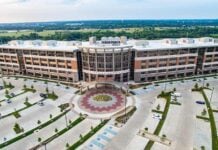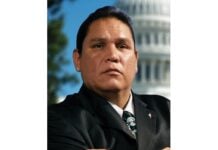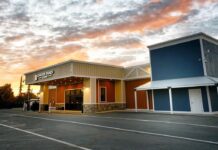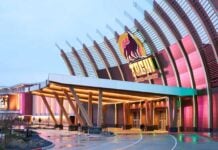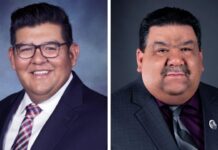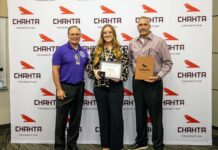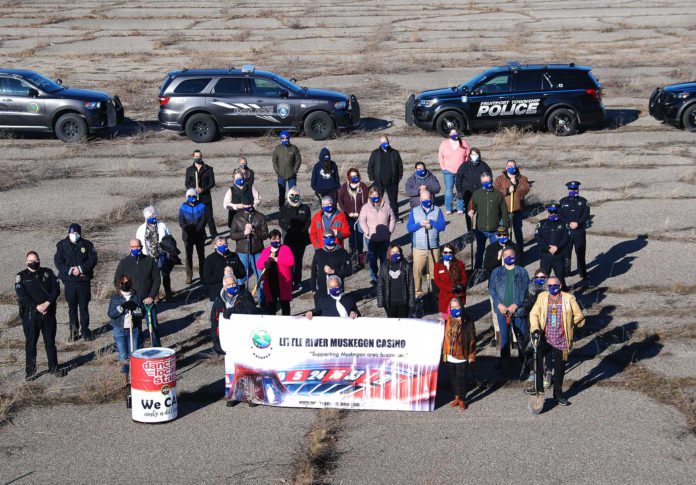
The United States Bureau of Indian Affairs has issued the Record of Decision and two-part determination for the Little River Band of Ottawa Indians’ Muskegon County casino project. This announcement completes the necessary federal approvals; the process now moves to the State of Michigan where the tribe will work with the Governor on negotiating a compact whereby the casino can be built at a former racetrack in Fruitport Township.
“This ruling clears the way for our tribe to work with the Governor to create 3,000 new jobs and a permanent, year-round entertainment venue in Muskegon County,” said Tribal Ogema Larry Romanelli. “We thank the Muskegon Community and other West Michigan communities for their support over the past 12 years and we look forward to putting shovels in the ground.”
Ogema Romanelli, along with community supporters in Muskegon ranging from local business owners, elected officials to education leaders gathered safely, following all COVID-19 protocols, at the site early Saturday morning to send a message to the Governor that the casino is ready to build. “We have been waiting for construction to start on this project for over a decade,” said Bob Syzmoniak, Fruitport Community Schools Superintendent. “A casino would bring jobs, new residents and economic development to Muskegon. The school district is 100% behind the tribe and this project.”
“Our goal today was to send a message – loud, clear and hopeful above all else, that we are ready to break ground on this project,” said Ogema Larry Romanelli. “We are optimistic and are counting on the Governor to say yes to the jobs, economic development and increased tribal services our project will bring to the community.”
The Muskegon County Casino Project represents an investment of over $180 million in the community and is slated to bring approximately 3,000 jobs to the region that include 1,500 high paying full-time jobs and 1,500 construction and ancillary jobs. The new casino is expected to attract 1.8 million visitors per year. The Little River Band of Ottawa Indians is building this casino with internal financial resources and no taxpayer dollars but is expected to generate economic development of $15 million in tax revenue for the State of Michigan and millions more for local governments.
Supporters of the project can send a letter to the Governor and Legislature, asking them to approve the Muskegon casino project by visiting this website: https://www.votervoice.net/Muskegon/campaigns/78168/respond
The tribe has extensive historical ties to traditional land in the Muskegon region with Muskegon County being home to the Little River Band’s largest population base. Muskegon County is also one of the Little River Band’s service areas and the tribe has long maintained governmental offices in Muskegon to serve its large number of local members.
“This shovel ready project will support 1,500 construction jobs that Michigan’s working families desperately need,” said Muskegon County resident Bill Kenney, Business Representative with the Michigan Regional Council of Carpenters and Millwrights. “The community universally supports this project and the men and women of the building trades can’t wait to get started.”
The Little River Band’s proposed gaming and economic development would include:
Approximately 69,000 sq. ft. of gaming floor space
- 1,700 slot machines
- 35 table games
- 220-room hotel
- Event and meeting room space
- Dining and entertainment options
As part of the Environmental Impact Study, the BIA reviewed potential environmental impacts of the casino project, including land use, geology and soils, water resources, agricultural resources, biological resources, cultural resources, traffic, air quality, noise, public health/environmental hazards, hazardous material and waste, public services and socio-economics. Visit www.littlerivereis.com for more information.



